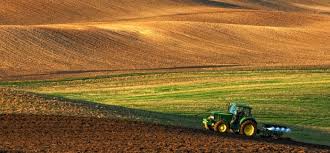OVERVIEW
UG’s Agricultural Extension Programme primarily focuses on training professionals who would ultimately serve as intermediaries between research and farmers. Agricultural Extension Officers operate as facilitators and communicators, assisting farmers in their decisionmaking and ensuring that appropriate knowledge is implemented to obtain the best results.
They communicate to farmers such vital agricultural information on how best to utilise the farmland, natural resources, animals, crops, how to design and construct proper irrigation systems, economic use and storage of water, how to combat diseases in livestock, and save on the cost of farming equipment and procedures. It is their responsibility to ensure that they pass on this information to the farmers in the most effective manner to ensure best outcomes at all times.
Some of the courses to be taught as part of the programme include Rural Development and Participatory Methodologies, Food Safety and Quality Standards, Elements of Microbiology and Immunology, Insect biology and Plant Microbes, Soil Genesis and Characterisation, General Biochemistry, Agriculture Engineering, Education and Training for Development Works, Introduction to Computer Science, Development Communication and Extension Methods, Biology of Farm Animals, Gender Planning and Development, Development Sociology amongst others.
AIMS AND OBJECTIVES
At the end of the programme, students are expected to:
• Have developed a wellrounded knowledge on the principles of Agricultural Extension services.
• Be able to identify and analyse the factors that affect crop and animal production including physiological, genetic, climatic, environmental, and edaphic factors.
• Be able to communicate effectively to various farmers on new research findings for improved yields.
INDUSTRY/GLOBAL TRENDS
The most conventional function of Agricultural Extension Service is for the Extension Officers to pass on as effectively as possible relevant and up to date information on modern farming methods and techniques. They encourage farmers to adopt new, improved methods of farming, using a variety of methods to reach farmers.
They organise study groups for farmers, ‘farmer days’, demonstrations, lectures and literature, as well as informing the media. The new trend however is that Officers are now trained to be able to research food, fibre and animal products in conjunction with agricultural scientists. They also assist cattle farmers,and guide and assist veterinary surgeons in the treatment of varied animal diseases. Agricultural extension officers can redesign a farm in collaboration with the farmer. All the resources on the farm are then thoroughly investigated to ensure effective usage and application.
They can even develop recovery programmes for eroded soil, protect cultivated land against erosion and develop a new pasture system. These days it is a common practice to see Extension Officers actively involved in the development of the rural communities in which they operate. They are generally seen as change agents by the farmers whose livelihood depends on the success or otherwise of their farms and the communities at large.
ASSESSMENT
Students are assessed through a combination of assignments, examinations and projects
TUITION METHODS
Lectures, class discussion and practical tutorials.
CAREER PROSPECTS
The Primary employer of Agricultural Extension Officers in Ghana is the Ministry of Food and Agriculture. However due to the fact that our programme is structured to give a broad base practical and theoretical knowledge to our students, graduates of this programme are some of the most sought after professionals required to run rural based and agriculture focused NGOs and manage private commercial farms.
They can also be engaged as educators at the various Agriculture Training institutions nationwide as well as Rural Development Practitioners.








